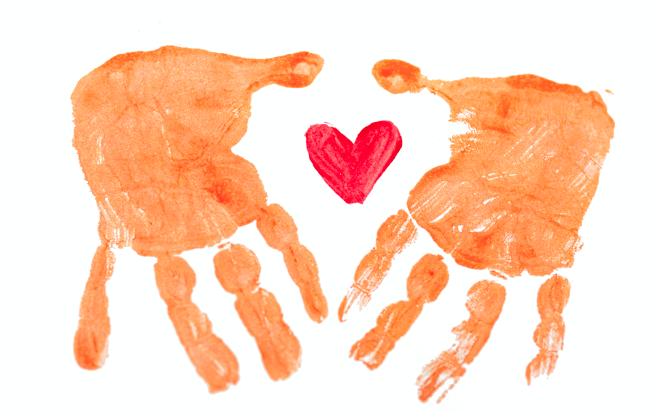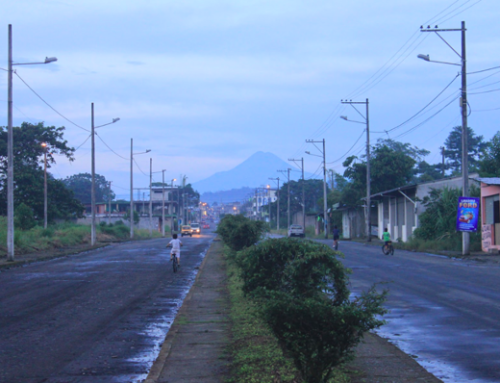
Photo by Rod Long on Unsplash.
Postcard/thumbnail image for this collection: Hand in Leaf (1973), by Marisol (Marisol Escobar; American, born France, 1930-2016). Published by Universal Limited Art Editions (American, founded 1955). U.L.A.E. Collection acquired through a challenge grant of Mr. and Mrs. Thomas Dittmer; purchased with funds provided by supporters of the Department of Prints and Drawings; Centennial Endowment; Margaret Fisher Endowment Fund.
In recent years, the field of anthropology has produced a comprehensive body of work focused upon the topic of care. As a multidimensional concept, care not only comprises the intimate and the affective. It is also a complex, layered set of practices embedded in relationships of power, identity, and morality (Brijnath 2014). Evidence from various ethnographic sites shows care to be a resource, a relation, and a practice that touches upon the intimate and familial, as well as the economic and the political. Care is contextual and specific, a polysemic concept emerging from the connections between macroforces and microprocesses (Buch 2015).
As a relation, some anthropologists contend that care encompasses empathy, solidarity and the ability to recognize the other as worthy of engagement (Kleinman 2009; Taylor 2008; Aulino 2016). Others question the category of care as a universal resource of compassion and moral certitude (Fassin 2010; Cook and Trundle 2020; Mittermaier 2021). Without ceasing to associate care to a restorative and world-building practice and with everyday acts that sustain social ties (Buch 2013; Zelizer 2005; Hochschild 2003), anthropological literature has considered the violence of institutional, state, and transnational care (Garcia 2010; Sufrin 2017; Ticktin 2011); how care entails, under specific circumstances, (bio)political engagements and forms of governmentality (Stevenson 2014); and, among other things, the ways it may disguise activities in which people are rendered worthless and, inevitably, exposed to social abandonment (Biehl 2012). Additionally, care is frequently performed by those in society who occupy the most socioeconomically constrained or disadvantaged positions (Hochschild 2003; Zelizer 2005; Buch 2018; Walter, this collection) or who are, often, struggling under regimes of exploitation. As persistently compromised as it may be in a neoliberal and capitalist economy (Muehlbach 2012), care reproduces and sustains the world as we know it.
After years of facing a global pandemic that has exacerbated social, political, environmental, and economic instability, one cannot help but ask: how are we to care in a world that seems to be falling apart? What does care look like in a society pierced by precarity, illness, pervasive racism, environmental destruction, and faltering democracy? Are we still able to care? How do we do it? This collection reflects upon the multiple ways in which people resignify existing practices of care and build new ones in these challenging global times. The fourteen essays contained here seek to extend our understanding of care as a practice related to medicine, health, and illness in order to explore practices and implications of care for and with oneself, others, and the environment. Given the expansive use of care in both lay and academic discourse, most contributors offer insight into the difficulty of meaningfully defining and employing care as an analytical category. Care engenders multiple approaches and practices, which may or may not be in tension with one another. Care also encapsulates various aesthetic and affective experiences.
The vocabulary of care forms a salient theme throughout this collection, as well as how care is translated between linguistic contexts. Jessica Robbins-Panko, Julia Kowalski, and Elana Buch further caution scholars to consider how care is translated across linguistic and cultural settings. A particular setting that poses an important challenge to understand how care is understood and enacted is that of sexual violence. In her work on the fragmentary articulations of sexual violence survivors, Alison Hanson tactfully explores storytelling as a modality of care. In a similar fashion, Gyuzel Kamlova considers the possibilities of caring through theatrical co-presence and co-participation. As a relational experience, Kamlova shows how this kind of care allows for everyday life and possible futures in the midst of an undeniably ableist and politically uncertain moment in Kazakhstan. Georgia Ennis and Roberto Zariquiey also highlight the relevance of caring practices in a fraught and unsettling settler colonial environment that has precipitated language endangerment. Both authors focus on Indigenous languages and what it means to care for them today from the perspective of impacted communities and scholars, respectively.
In addition to language, many contributors reflect on how care is cultivated through kinship and communal relations. Felicity Aulino considers family as a care-based epistemology through narrations of “jaogamnaiwaen,” or enemies of a former life, in Thailand. Sonia Rupcic attentively explores the digital world of “boundary parenting” as a means for parents to care for themselves and their children. Jessaca Leinawever carefully revisits the “care slot” to consider the responsibilities and constraints of caring for elderly family members in Peru, while Jason Danely examines how the elderly in Japan remain unsettled between family and the criminal justice system. Finally, Cristina Douglas’s experience with an elderly dog results in a thought-provoking reflection on care and damage in the Anthropocene.
Amidst multiple climate emergencies, the complexities of kinship relations, and social contexts that pose danger for women and Indigenous communities, the featured essays not only consider what counts as care and who cares, but also where care is enacted. Marcela Morales-Magaña and Columba Gonzalez-Duarte follow butterfly migration and water pathways to consider care as an ecology of knowledge. Brian Walter examines the racial and geographical implications of climate dispossession in South Carolina’s Lowcountry, while Iza Kavedžija probes the immaterialized aspirations of Nova Bolnica, an abandoned hospital system in Croatia. Last but not least, John Doering-White and Alejandra Díaz de León question the changing physical and digital landscape of migrant centers in Mexico and argue that, studying and enacting care in these settings presupposes that researchers get caught in what Srila Roy calls, “messy entanglements.”
Overall, this group of essays addresses the political, affective, social, and economic implications and dimensions of caring in times of profound insecurity. It further examines the ethical challenges and possibilities that caring for ourselves, the world, and others might presuppose in such a global context. For our authors, what it means to care in a convoluted world extends from families to infrastructures, from bodies to borders. In doing so, each piece contributes to our understanding of care as a mode of practice and analysis.
References
Aulino, Felicity. 2016. “Rituals of Care for the Elderly in Northern Thailand: Merit, Morality, and the Everyday of Long-Term Care.” American Ethnologist 43 (1): 91-102.
Biehl, Joao. 2012. “Care and Disregard”. In A Companion to Moral Anthropology. Blackwell.
Brijnath. Bianca. 2014. Unforgotten: Love and the Culture of Dementia Care in India. Oxford: Berghahn.
Buch, Elana. 2013. “Senses of Care: Embodying Inequality and Sustaining Personhood in the Home Care of Older Adults in Chicago”. American Ethnologist 40 (4): 637-650.
Buch, Elana. 2015. “Anthropology of Aging and Care.” Annual Review of Anthropology. 44: 277-293.
Buch, Elana. 2018. Inequalities of Aging: Paradoxes of Independence in American Home Care. New York: New York University Press.
Cook, Joanna, and Catherine Trundle. 2020. “Unsettled Care: Temporality, Subjectivity, and the Uneasy Ethics of Care.” Anthropology and Humanism 45 (2): 178–83.
Fassin, Didier. 2010. “Inequalities of Lives, Hierarchies of Humanity: Moral Commitments and Ethical Dilemmas of Humanitarianism.” in In the Name of Humanity: The Government of Threat and Care, edited by Ilana Feldman and Miriam Ticktin, 238-255. Durham, NC: Duke University Press.
Garcia, Angela. 2010. The Pastoral Clinic: Addiction and Dispossession along the Rio Grande. Berkeley: University of California Press.
Hochschild, Arlie Russell. 2003. The Commercialization of Intimate Life. Berkeley: University of California Press.
Kleinman, Arthur. 2009. “Caregiving: The Odyssey of Becoming more Human”. The Lancet 373 (9660): 292-293.
Mittermaier, Amira. 2021. “Non-Compassionate Care: A View from an Islamic Charity Organization.” Contemporary Islam 15 (2): 139–52.
Muehlbach, Andrea. 2012. The Moral Neoliberal: Welfare and Citizenship in Italy. Chicago, IL: University of Chicago Press.
Stevenson, Lisa. 2014. Life Beside Itself. Berkeley: University of California Press.
Sufrin, Carlyn. 2017. Jailcare: Finding the Safety Net for Women behind Bars. Berkeley: University of California Press.
Taylor, Janelle. 2008. “On Recognition, Caring, and Dementia”. Medical Anthropology Quarterly 22 (4): 313-335.
Ticktin, Miriam. 2011. Casualties of Care: Immigration and the Politics of Humanitarianism in France. Berkeley, CA: University of California Press.
Zelizer, Viviana. 2005. The Purchase of Intimacy. Princeton: Princeton University Press.
Salwa Tareen is a PhD Candidate in Anthropology at Boston University. Her research explores the interplay between religious ethics, gender, and the politics of care in urban South Asia.
Magdalena Zegarra Chiappori holds a PhD in Anthropology from the University of Michigan. Her work is located at the intersections of old age, care, and precarity.




